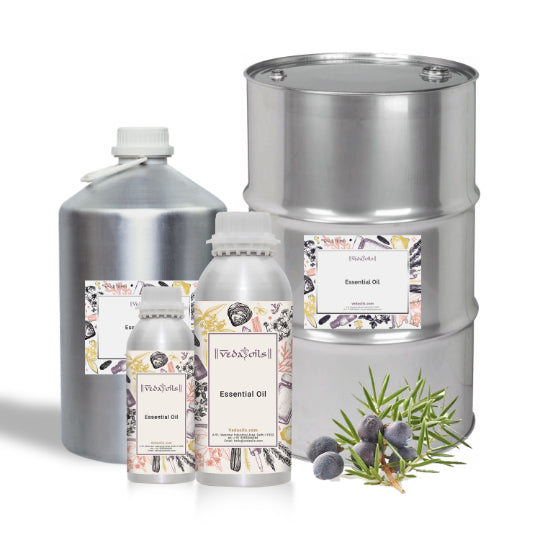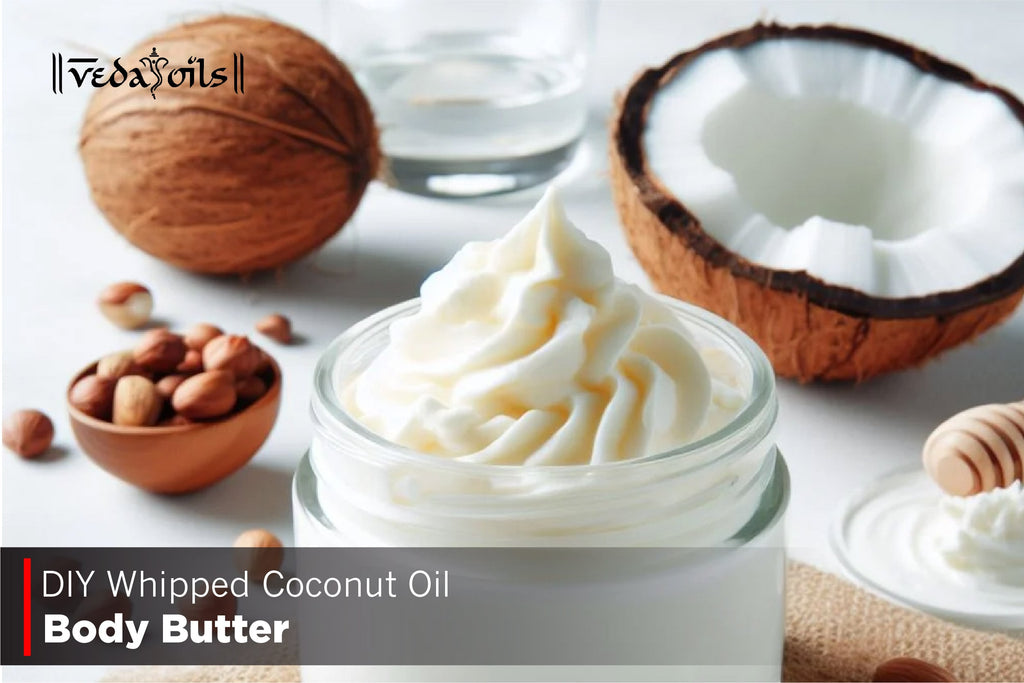Coconut Oil Vs. Mustard Oil – Which One Is Better For You ?
Coconut and mustard oil are popular cooking oils used in various parts of the world. These oils are used for more than just cooking. Both oils are different in nutrient composition, skincare, haircare, and other health-related qualities, even though they each have their qualities and advantages.

Their thickness and rate of absorption are two key variations. The following information will help you determine which of these two oils is best for your skin and hair. We'll go over the distinctions between coconut oil and mustard oil in this post and how each affects your skin, hair, and overall health.
What is Coconut Oil ?
Coconut oil is produced by pressing fresh coconut meat and, occasionally, copra, which is dried coconut meat. Coconut oil is a fantastic element for a generally healthy body because it is vitamin- and mineral-rich. A wide range of advantages is provided by coconut oil, from improved cognitive function and metabolism to healthier hair and skin.
What Is Mustard Oil?
Mustard oil is a pungent and bitter oil made from mustard seeds, and this oil is typically used in cooking. Mustard oil might moisturise your hair and scalp. Moreover, it could minimise scalp inflammation or irritation.

Mustard oil is a rich source of vitamin B complex, A, E, calcium, protein, and omega-3 fatty acids. This oil is also recognised to help treat premature ageing by reducing wrinkles and fine lines. This oil can moisturise skin, treat scars, and achieve a complexion that is evenly toned.
Difference Between Coconut Oil And Mustard Oil
There are a few differences between mustard oil and coconut oil. In this part on coconut oil vs. mustard oil, let's examine how they differ regarding skin and hair care.
Coconut Oil Vs Mustard Oil For Hair
Both coconut and mustard oil include antioxidants, anti-bacterial agents, and a variety of nutrients that are good for hair and can be used to cure dandruff, hair loss, infections of the scalp, etc. For hair, compare coconut oil and mustard oil.

Coconut Oil For Hair
Coconut oil is a nature-made hair-loving ingredient. It has a lot of fatty acids, vitamin E, and moisture that nourish your scalp. Coconut oil is fantastic for hair that is frizzy, dry, dull, thinning, or damaged.
You can use coconut oil for hair directly, in oil blends, hair masks, other hair products, etc. It is also noted for its versatility. The fatty acids and antioxidants in coconut oil strengthen, thicken, and otherwise improve the health of your hair
Mustard Oil For Hair
Indian households prefer using mustard oil for everything from skin and hair care to cooking. Due to its high alpha fatty acid content, this viscous oil is a natural conditioner for hair.
It keeps your hair moisturized and keeps it looking healthy and bouncy. Iron, magnesium, calcium, antioxidants, and vitamins A, D, E, and K are all abundant in mustard oil. These substances ensure your hair is darker, thicker, and less likely to get prematurely grey.
Coconut Oil Vs Mustard Oil For Skin
These oils are also fantastic for caring for the skin. They can heal acne, scars, blemishes, and other skin conditions since they are high in antioxidants, fatty amino acids, and collagen-repairing elements. Compare the effects of coconut oil with mustard oil on the skin.

Coconut Oil For Skin
Due to its abundance of medium-chain fatty acids, particularly linoleic acid and lauric acid, which have powerful anti-bacterial and antimicrobial properties and lauric acid is the best hydrator, coconut oil can play many prominent roles in your skincare routine, including that of a moisturizer.
If you have dry, sensitive skin or atopic dermatitis, adding coconut oil to your skincare routine can be especially beneficial because of its emollient characteristics, which can assist in rebuilding the skin's barrier function. Coconut oil prevents transepidermal water loss while also retaining moisture on the skin.
Mustard Oil For Skin
As previously mentioned, mustard oil contains some vitamins, including A, B complex, and E, as well as omega-3 fatty acids and alpha-linolenic acid. These components aid in hydration and guard against the harm of free radicals, eventually leading to early ageing.

Moreover, mustard oil promotes the growth of collagen, which is essential for maintaining youthful, tight skin. Mustard oil, which is high in vitamins, helps us look less bronzed, lightens dark spots, and manages hyperpigmentation. Also, it functions as a sunscreen, shielding your face from UV radiation and preventing tanning.
Coconut Oil Vs Mustard Oil - Which Is Better?
The decision between coconut and mustard oil depends on personal preference and particular demands, but each has unique advantages for skin and hair. Because of its well-known hydrating qualities, coconut oil is an excellent option for dry and damaged skin and hair. It has fatty acids that hydrate and nourish the hair and skin for a long time by penetrating deeply into those tissues. It also possesses anti-inflammatory and anti-bacterial qualities that can help to treat and prevent acne and skin irritation.

On the other hand, mustard oil provides a great source of vitamins and minerals, including vitamin E, a potent antioxidant that helps to shield the skin from harm. It also contains many omega-3 fatty acids, which help support healthy hair and stop hair loss. Additionally, due to its warming characteristics, mustard oil is frequently used in conventional Ayurvedic treatment to promote circulation and reduce pain and inflammation.
Overall, coconut and mustard oils are good for the skin and hair, but they each offer unique qualities and advantages. It's best to decide based on your unique requirements and tastes or ask a dermatologist or hair professional for specialized advice.
Conclusion
Both coconut and mustard oils are fantastic moisturizers for the face and hair. These two oils can promote hair development and uniformly toned skin. You may learn more about these oils' quality and purity by visiting VedaOils.com. In India, VedaOils is a leading manufacturer and supplier of carrier oils. Get special offers on your initial purchase.
Frequently Asked Questions
Here are some frequently asked questions about Coconut Oil Vs Mustard Oil:
Q.Is Grapeseed Or Coconut Oil Better For You?
Ans. The grape seed oil has a very fine, non-greasy texture that does not create a greasy film on the skin, in contrast to heavier oils like coconut or organ oil. Additionally, its small molecular structure and fast absorption leave skin feeling extraordinarily smooth and soft without clogging pores.
Q. Which Is Better, Coconut Oil Or Mustard Oil?
Ans. Coconut oil is preferable for residents of southern India, whilst mustard oil is preferable for residents of northern India. This is because coconuts are abundant in southern India, where natives should eat them. After all, they are healthy for their bodies' metabolisms.
You May Also Like:
Buy Products
-
 Black Pepper Essential Oil
Black Pepper Essential Oil -
 Buchu Essential Oil
Buchu Essential Oil -
 Cade Essential Oil
Cade Essential Oil -
 Calendula Essential Oil
Calendula Essential Oil -
 Virgin Coconut Oil
Virgin Coconut Oil
Related Articles
Disclaimer :- This article is intended for informational and educational purposes only and should not be considered a substitute for professional medical advice. For specific health concerns or treatment, please consult your personal physician. The article's editor, writer, and VedaOils organization do not assume any responsibility for any health outcomes resulting from the information provided. Readers are strongly encouraged to seek advice from their physician before acting on any recommendations made in these articles.

















 Sign in
Sign in Register now
Register now My Reward Points
My Reward Points









